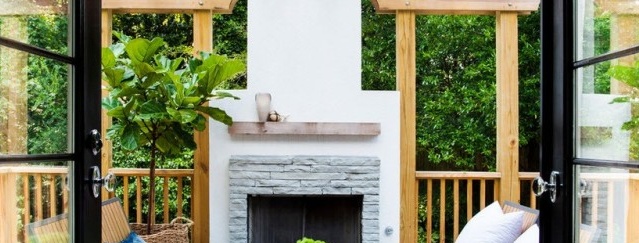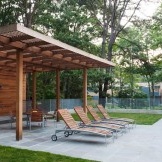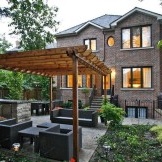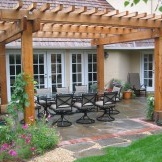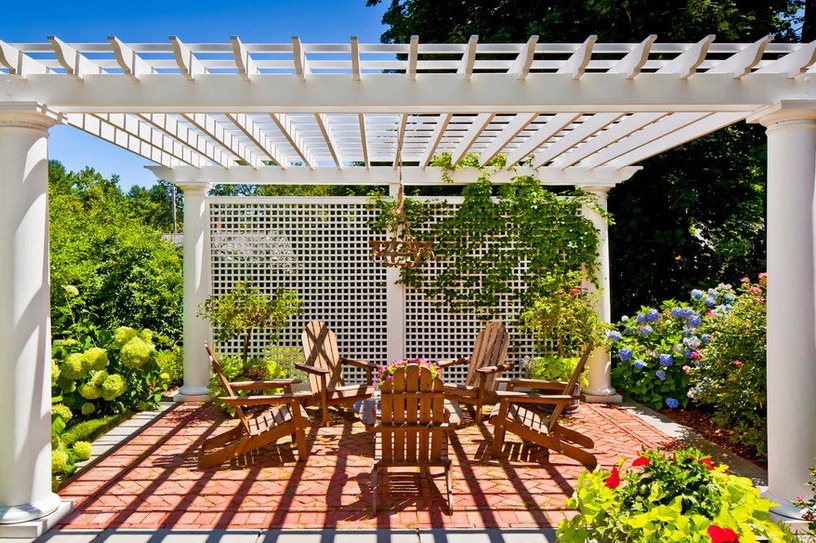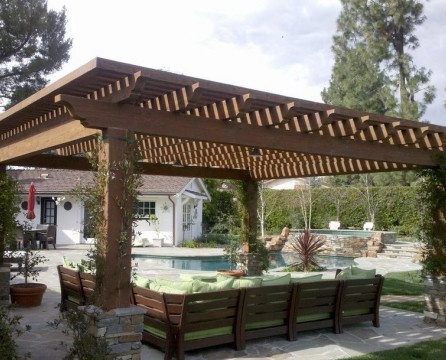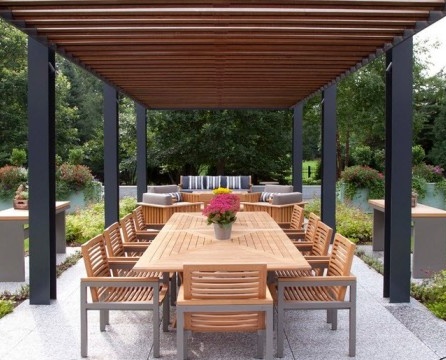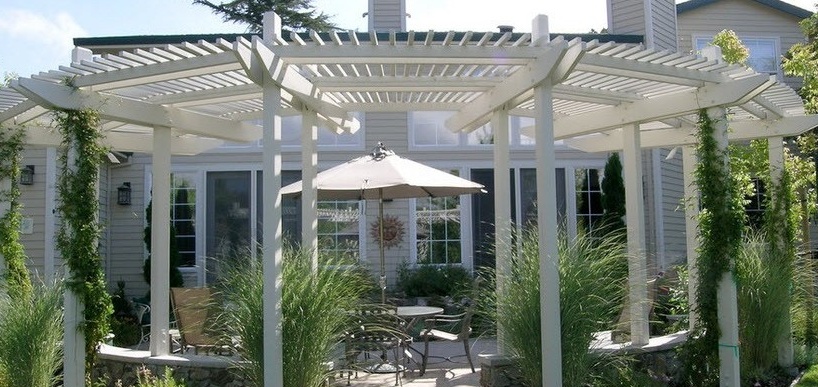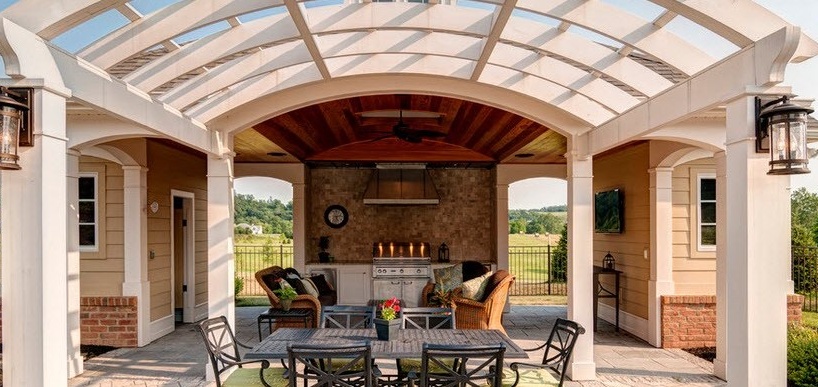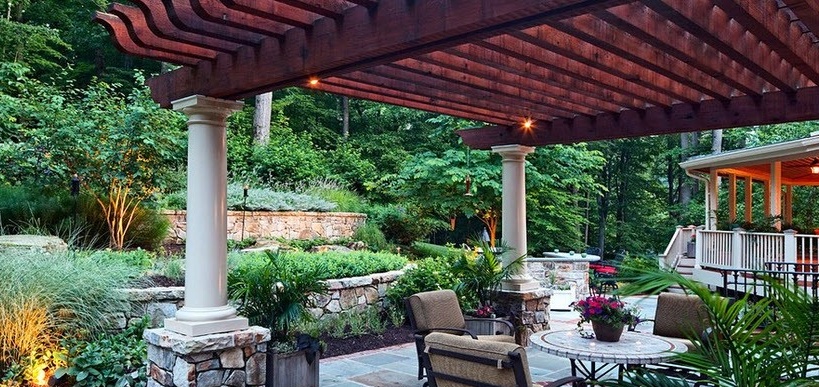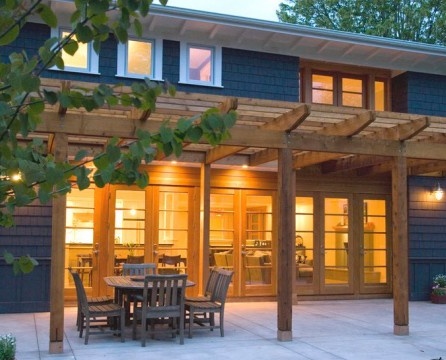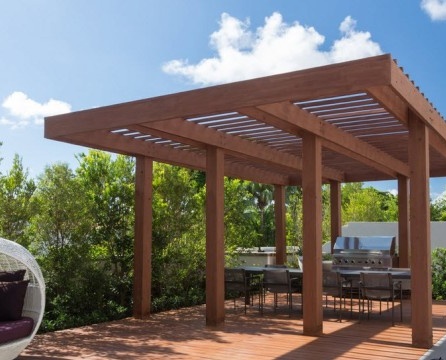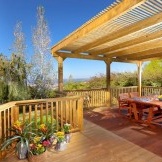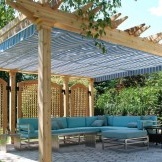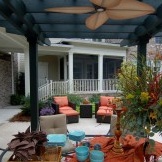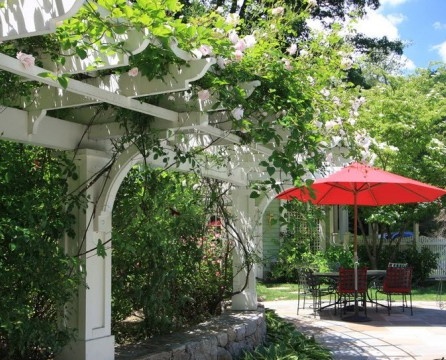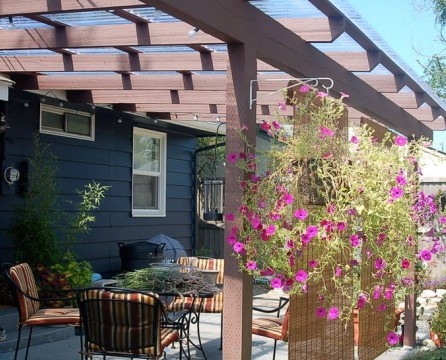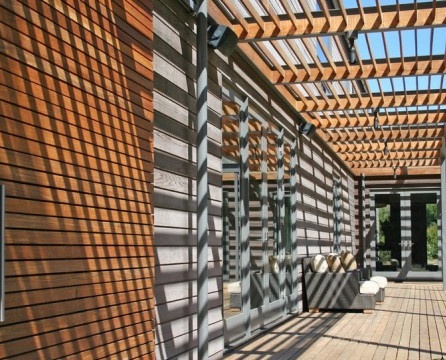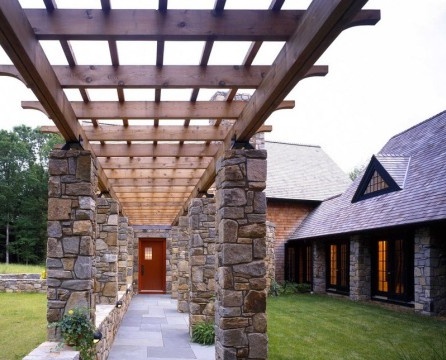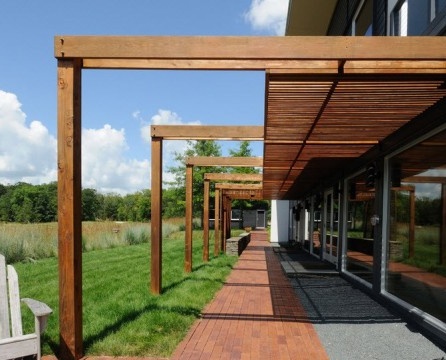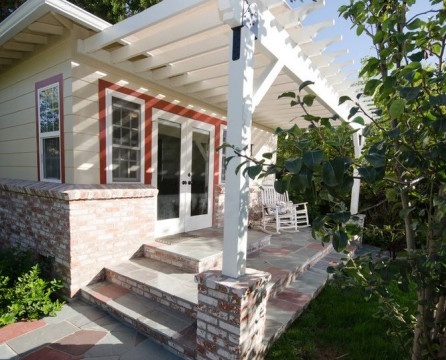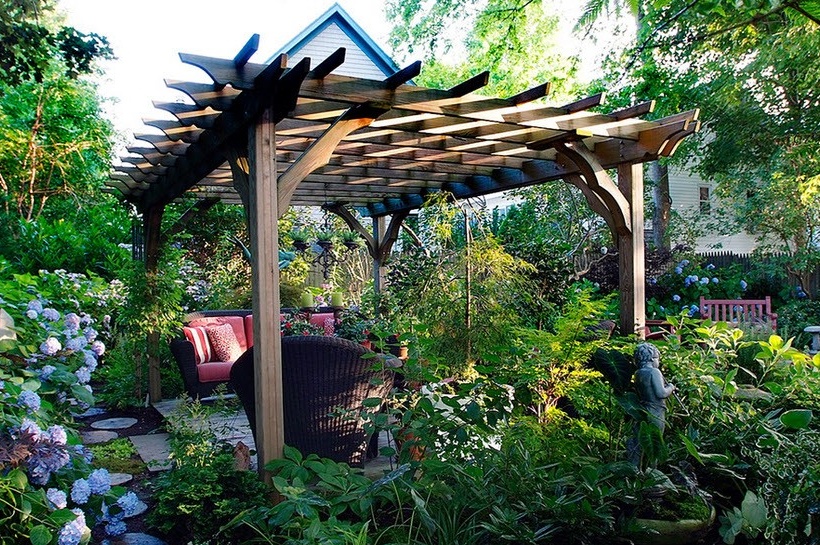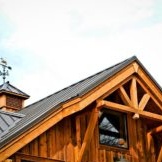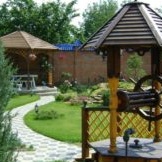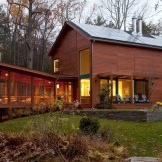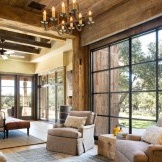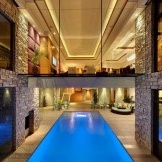Pergola: a beautiful addition to your home
Pergola is a charming invention that has come to us since ancient times. Among other canopies, the pergola is distinguished by its architectural form. It is created by the type of openwork corridor. This term has Italian roots and is already firmly established in landscape design. Translated from Italian and Latin, this word means a canopy or an extension. Used by gardeners, owners of cottages, country houses, cottages, mansions and so on to protect the terrace or passage from the scorching sun. Initially, this canopy was from climbing plants, but over time they began to make it from more durable materials: wood, plastic and metal. If you look at the pergola from the inside, you can see that it does not look like a gazebo or trellis for climbing plants. The support is made up of repeating sections of arches, columns, pillars, which are connected by transverse beams and twisted by plants. There are two types of pergolas: free-standing and adjacent to the building. They also build these canopies to connect pavilions, parks, buildings and soda structures.
Ξ The most important task is to protect from the scorching sun. In this cozy and secluded place it is pleasant to sit in the summer heat, enjoying a cool shade. It is very useful to have a pergola where there are children. Since they categorically cannot stay in the open sun for a long time, and playing in the fresh air is very useful, such a canopy becomes simply irreplaceable.
Ξ Also this canopy is often used as a recreation area for tea drinking and other pleasant pastime with friends and family in a cool corner among nature. You can gather with friends for barbecue, barbecue, various board games and at the same time enjoy the beautiful scenery around, breathe in the fragrance of the garden, and not overheat in the sun.
Ξ And, of course, the pergola acts as a support for climbing plants. With the help of pergolas, whole works of art are created - various flowers intertwine, creating a unique pattern, and all this can stretch like a tunnel, a corridor or surround you with a fabulous ring.
Ξ And just to decorate the garden. Under such a canopy, you can create a greenhouse, front gardens, create flower beds or even make a garden.
The use of pergolas, in general, is very diverse - some like small canopies with swings, others like wide, long, narrow and so on. It all depends on the task that the owners put on their awnings: for picnics with guests, for the economy, solitude, breeding front gardens or flower greenhouses and so on. Therefore, the appearance of each pergola is different. But recently, it has become relevant to build several canopies with various functions at once. They can be placed completely separately, or connected by transitions, for example, at an angle. The open sky will alternate with canopies and create unusual landscape compositions.
These structures can be classified by simplicity or complexity of manufacture. Village pergolas, for example, are made from larch logs or other inexpensive wood species and do not differ in complexity of construction. For a summer residence - this is quite the best option.For owners of noble villas, cottages or estates, pergolas from expensive wood or stone columns are suitable for which carved oak beams are perfect.
So, in addition to the cost of materials, pergolas are classified according to the following criteria:
Shape - fan-shaped, rounded, with kinks.
Materials - wood, stone, metal, plastic.
Placement option - adjacent to the wall, a separate structure.
Each person has his own perception of life and his needs. Therefore, gradually began to appear types of awnings that meet the requirements of people and their desires.
Types of Pergolas
- Awning. The pergola tent has a denser upper part, intended, as the name implies, to protect from the sun. It can be adjacent to the building or not. It is convenient to use for a playground or for a car. It can easily replace the gazebo and become an ideal place for eating in the fresh air - very useful, by the way. Light penumbra and a soft breeze always prevail here. But such a structure will not save from rain, unfortunately. Although, of course, enterprising people can cover the top of such a pergola with tarpaulin or other waterproof materials, then you can sit and drink your favorite tea, even in summer rain.
- Screen. This type of canopy provides the much-needed privacy, in particular from neighboring eyes. In addition, it is convenient to divide the space into zones using such a pergola. For example, to separate a recreation area from a sports one or a place for a car.
- Tunnel. Here, the name speaks for itself. That is, the whole pergola has a common focus and is most often located above a path or path. Usually this type of canopy is used to "mask", for example, a garden, outbuildings and so on. Although it can also act as a decoration.
- Visor. The type of such a canopy came to us from the south, where it is the norm for almost every house to attach this canopy, which is often entwined with grapes or other climbing plants, which creates the necessary shade on the south side. Accordingly, with us it performs the same function - it saves the southern part of the building from the scorching sun.
So, there are several basic principles that will help rationally and usefully decorate your country house with such a design as a pergola.
- The appearance of the canopy determines how you will feel under it or even next to it. If the pergola is made of heavy, bulky materials, with columns and so on, then its massiveness will seem to suppress. It will be difficult to sit calmly and relax. This design is more suitable for any outbuildings, for noisy parties or for the pool, especially if the surrounding atmosphere is appropriate - also massive.
But if you have a neat garden around you, and you want to be alone with your thoughts, relax or even swing on a swing and fly in the clouds, then you need to build a lightweight structure that will not have an overwhelming effect.
- The second principle says that the dimensions of the canopy are comparable with the size of the plot. Everything is very logical here, if the territory is small, then the pergola should be small, but the big one here will simply clutter up the whole space. And on a large plot - a large pergola, otherwise a small pergola will be lost.
- Regardless of whether the pergola is planned - massive or light - it must be strong. After all, firstly, it has a considerable height and is always in the wind (it is advised not to exceed a height of 2.5 meters); and secondly, climbing plants will exert their pressure.
- Even if you expect that your pergola will be decorated with green plants that will completely entwine it, do not neglect the elimination of possible flaws. After all, in winter all this will come out.Therefore, when designing a pergola, make sure that it is absolutely perfect on all sides.
- Both wood and metal can suffer from excess moisture and other substances. Therefore, the wooden extension must be regularly and thoroughly treated with special antiseptic solutions that will prevent damage to the structure, as, by the way, metal from corrosion.
So, regardless of your preferences and desires, you can always pick up or create a pergola yourself to your taste and mood. And, most importantly, that it has such a number of advantages that it is already difficult to imagine suburban life without it.
With the help of a pergola, you can even bring a piece of another culture to your territory. For example, with the help of a design made in the oriental style, you will feel a little bit a resident of the Celestial Empire.
A very original option is to build a pergola as part of the building. That is, it turns out something like a veranda, but instead of a pergola roof, instead of walls, wooden columns and gratings. That is, no glasses, and so on. The floor can, of course, be made ordinary, as in the whole house and even set up a fireplace. It will become an inimitable place to relax.

